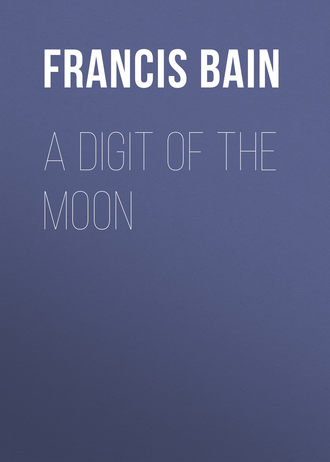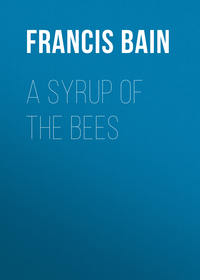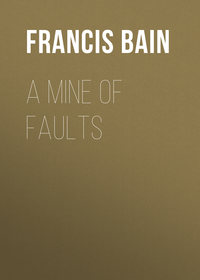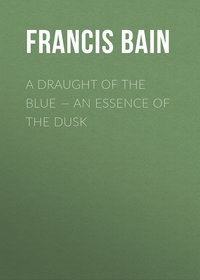 полная версия
полная версияA Digit of the Moon
35
'Wielder of the thunderbolt,' an epithet of Indra, the god of rain.
36
Perhaps only a Hindoo could appreciate the dexterity with which this story is placed first, and thus the favour of Ganapati, as it were, secured for the rest.
37
Just as the clothes of the Princess change colour every day, so does the state of the King's mind, which goes through a regular series of transitory emotions (wyabhichári).
38
i. e. 'seat of justice.' The meaning is important, as the sequel shows. It does the Princess credit that she notes and remembers it.
39
To kill, let alone to eat, a cow, would be of course one of the most deadly sins of which a Brahman could be guilty.
40
See Manu II., 227, sqq.
41
I remember to have heard a very inferior version of this story from an old Pundit with whom I read Maráthi.
42
Smara means both love and memory.
43
Both words mean image, reflection.
44
The hetæra plays in old Hindoo stories a still larger part than she did in Greek.
45
There is an untranslateable play on the word here.
46
Goura cannot mean white, because dhawala comes on a later day.
47
See below.
48
i. e. to take him in, with her husband away, would be bad enough, but, &c. A Hindoo even at the present day would murder his wife for a much smaller crime than this.
49
This appalling question, which has puzzled the wise men of all ages, is answered by the Princess as well as by any one else.
50
An allusion to the name Suwarnashílá, which means 'good as gold.'
51
This is an everyday phenomenon in Hindoo stories; and its appearance in the Golden Ass of Apuleius puts it beyond all doubt that his story came originally from India.
52
A master of policy.
53
Meaning both 'a connoisseur,' and 'a devourer of beauty,' with an allusion to Ráhu, who causes eclipses by devouring the moon.
54
A fabled power of swans, frequently alluded to in Sanskrit poetry.
55
Should any reader be of opinion that I ought to have omitted or emasculated this story, I can only reply that I wish all Bowdlerisers no worse fate than that of the ascetic in the tent.
56
History repeats itself. M. Rousselet, who travelled in India in the sixties, mentions, in his L'Inde des Rajas, a case that he saw in Rájputána of a holy man who suspended himself in a tree 'like a ham.'
57
i. e. 'laughter incarnate.'
58
Attahasa, 'loud laughter,' is a name of Shiwa. Kálidás (in his Cloud, v. 62) compares the snowy peaks of Mount Kailas to the laughter of Shiwa 'rolled into a ball.' (Note, that laughter is always white in Sanskrit poetry.)
59
Spado factus sum. The 'dweller' is Párwatí, or Durgá, Shiwa's other half, in the strict sense of the term.
60
Digambara, i.e. you must be stark-naked, or in a state of nature.
61
A particular follower of Shiwa.
62
Another sect of Shiwa worshippers.
63
The lowest of all the castes, a synonym for all that is vile and impure, like the 'Jew dog' of the Middle Ages.
64
Yama (pronounce Yum) is the judge of the dead, and Chitragupta his recorder, who keeps account of man's actions.
65
An independent woman is a synonym for a harlot, in Sanskrit.
66
Smara means 'love' and also 'memory.'
67
The point of this crafty little story almost evaporates in translation. It is artfully contrived to entrap the Princess into saying 'an ape:' but she is too cunning. Tawny-haired means, literally, 'ape-coloured.'
68
The pun is untranslateable: it may mean also, 'tossing up its gory locks' (kákapaksha).
69
This is the critical point. These words may also mean: What is the caste of the child? The wrestler's answer fits both. The searching for fleas, as applied to the child, will surprise no one who has been in India.
70
A term, very common in Sanskrit poetry, for a woman who goes of her own accord to her lover.
71
It is not clear how she knew this, unless she heard him tell the judge.
72
It is not clear what goméda means.
73
i. e. a tall tree. Our idiom is the same.
74
The author probably knew that the elephant's feet are very apt to go wrong and cause trouble: but whether 'white ants' or any other ants could produce the disease is a point for the natural historian to determine.
75
Famous in poetry for its extraordinary toughness.
76
Literally, what is the error of policy (nítídósha) in the story.
77
i. e. 'a chain is no stronger than its weakest link.' The Princess's answer is exceedingly clever: and there are few who would not have given the obvious answer which she rejects.
78
I have slightly modified the original jingle, which means: The thirst for delusion is the bane of the universe.
79
i. e. 'red lipped.'
80
Ceylon: reputed to be the home of a certain kind of demons called Rakshasa.
81
The moon is not feminine in Sanskrit.
82
This is not a strict translation. Hindoo ladies, as far as my experience goes, do not blush: they 'exhibit shame.' But as the emotion is clearly the same, I have employed the English equivalent.
83
The king of the snakes.
84
i. e. 'the mine, or receptacle of jewels,' a common appellation of the sea.
85
The dénouement of this story has a most singular resemblance to that of Prosper Merimée's Lokis. But apparently he drew that admirable story (as he did his Carmen and his Venus) from older sources, of Lithuanian, Gipsy, possibly even Hindoo origin.
86
Kapisha.
87
Trinamani, a gem that attracts grass.
88
This story is only the embodiment of an idea familiar to every Hindoo, but in the original it is very pithily told.
89
Lóhita. The sea-gem is perhaps some kind of pearl.
90
The god of death (pronounce Yum).
91
Káma, or Kámadéwa, the god of love. His names are innumerable.
92
'Down-grower,' the banian, which lets down roots from its branches.
93
A name for Love which also means memory.
94
One of the common names of Love is 'the mind-born.'
95
She turned pale, possibly because she saw that her love for the King must have an end: but still more probably because she was afraid of offending the God of Love by not deciding in his favour.
96
Kála, Time, is another name for Yama. The answer of the Princess is clever in the extreme.
97
i. e. it is all over with me. Water is offered to the spirits of departed ancestors.
98
i. e. I shall fail in my suit, like the others. The following sentence is a play on his own name.
99
'Done and not done.'
100
Achárabhrashta, an apostate or decasted person. See Manu, I., 108.
101
Wétála, an uncanny being, generally possessing magic powers, given to occupying empty corpses and devouring human flesh.
102
The lowest caste, whose very proximity was pollution to a Brahman.
103
This is all one word in the original, únádhikákritamkritam, 'what has been done is too little, too much, and not done at all.'
104
Literally, 'the object is attained.'
105
Here there is a pun.
106
This has a meaning: see below. The sunstone is probably a topaz.
107
See note, p. 88.
108
This is an allusion to the swayamwara, an old ceremony by which a maiden chose her own husband by throwing a garland round his neck.
109
See Manu, III. 26. Though recognised as a legitimate marriage, especially for Kshatriyas, it was simply the union of two lovers without any rites at all. This suits it admirably for fairy tale and romance, and makes it a great favourite with the poets.
110
Bhakti is almost untranslateable. It means the absorbed and total love, faith, devotion of a worshipper for his god.
111
Shiwa.





